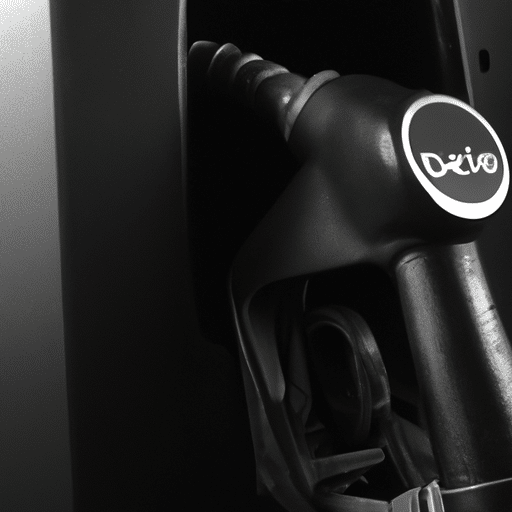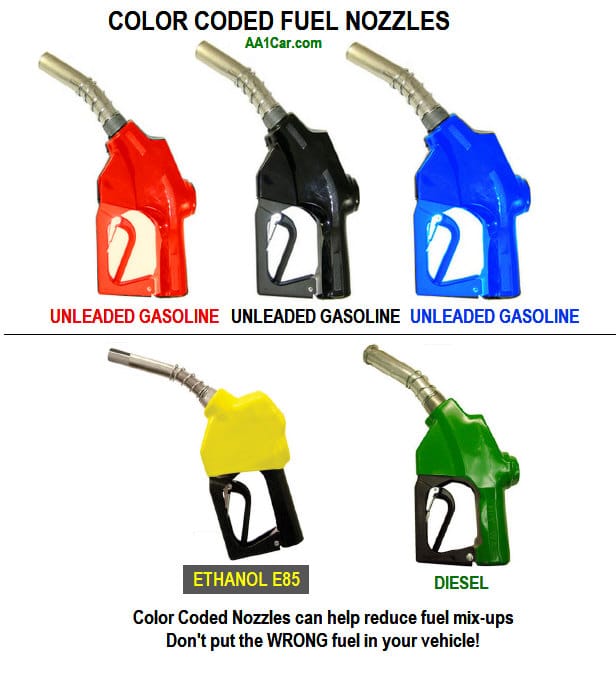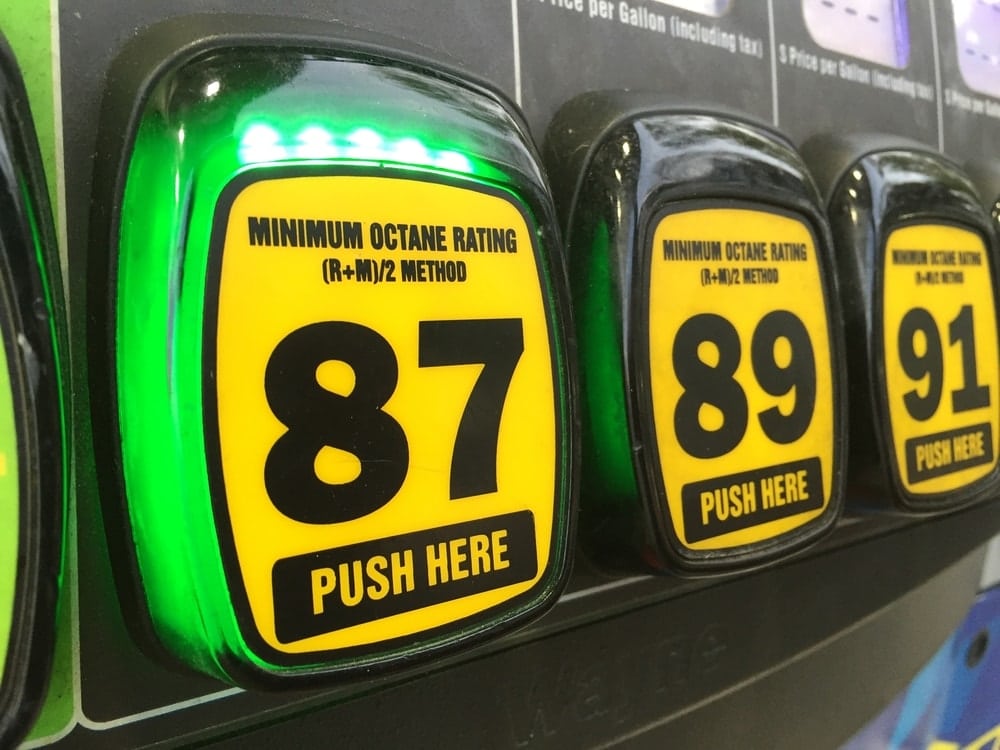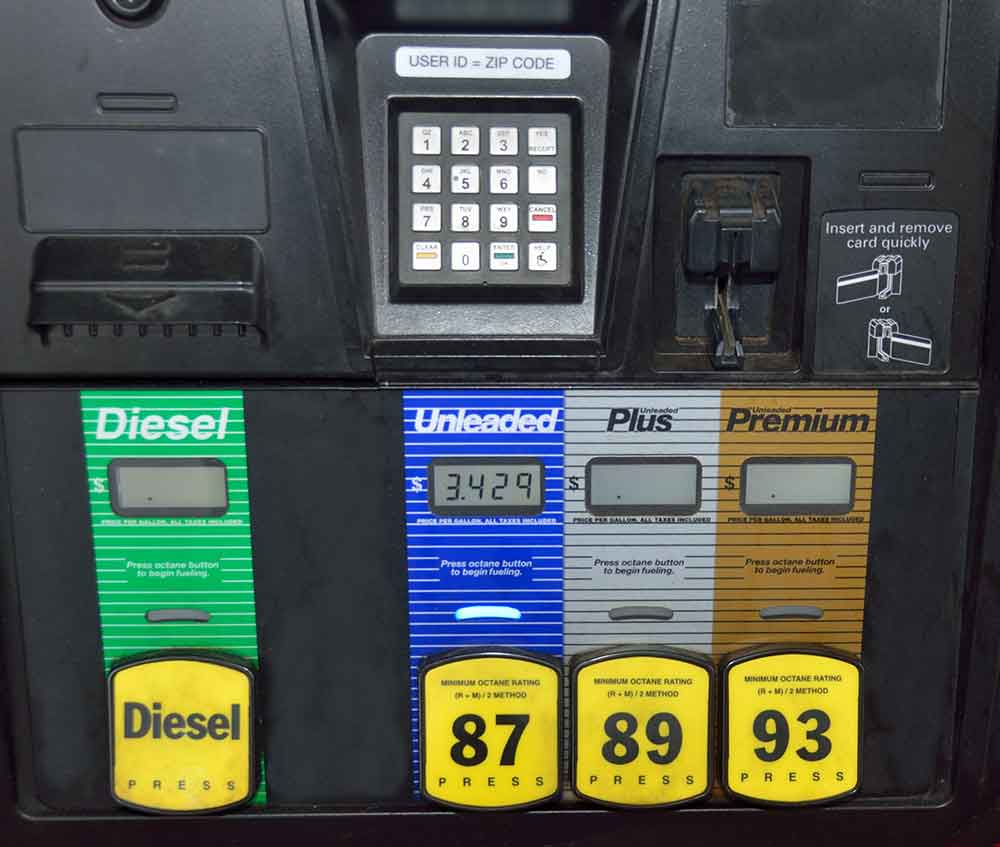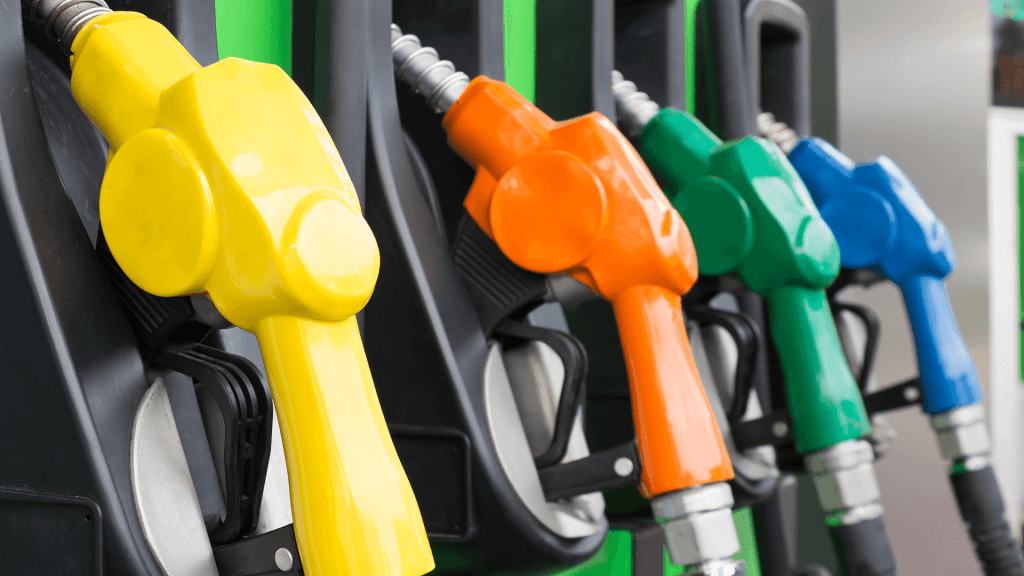Imagine the scenario: you’re standing at the gas station, and for some reason, you accidentally reach for the wrong fuel pump. Instead of filling your diesel-powered vehicle with the correct fuel, you pump in 93-octane gasoline. Panic sets in as you wonder what will happen next on earth. Is your engine going to explode? Will you be left stranded on the side of the road? Don’t worry; we’ve got you covered. In this article, we’ll explore the consequences of putting 93-octane gasoline in a diesel engine and provide some insights to put your mind at ease.
Overview
Definition of Octane
Octane is a term commonly used to describe the quality or rating of gasoline. It refers to gasoline’s resistance to combustion caused by high pressure and heat in an engine. The higher the octane rating, the more resistant the gasoline is to knocking or pinging inside the engine. Octane rating is crucial for gasoline engines, but it is essential to understand that diesel engines require a different fuel type.
Difference between Gasoline and Diesel
Gasoline and diesel are commonly used in vehicles but have notable differences. Gasoline fuel is lighter and more volatile compared to diesel fuel. Gasoline engines use a spark ignition system, while diesel engines use a compression ignition system. The combustion process in gasoline engines relies on the spark plug to ignite the air-fuel mixture. In contrast, diesel engines compress the air until it reaches a high temperature, causing the injected fuel to ignite spontaneously. Due to these fundamental differences, gasoline and diesel fuels are not interchangeable.
Purpose of Octane Rating
Octane rating is primarily used to measure gasoline’s performance and anti-knock properties. It helps to ensure that gasoline burns smoothly and efficiently in an engine without causing unwanted knocking or pinging that can lead to engine damage. The octane rating represents the percentage of octane compound present in the fuel. Higher octane ratings are required for high-performance engines that operate under higher compression ratios.
Effects on Diesel Engine
Poor Combustion
When 93-octane gasoline is mistakenly pumped into a diesel engine, it can result in poor combustion. Diesel engines rely on the compression ignition process, and gasoline ignites differently. Gasoline fuels require lower compression ratios and higher spark ignition temperatures, which can lead to incomplete combustion in a diesel engine. This poor combustion can cause a range of issues and may result in damage to various engine components.
Reduced Engine Performance
Using 93-octane gasoline in a diesel engine can significantly reduce engine performance. The fuel mixture will not burn efficiently, leading to a drop in power output and decreased fuel efficiency. The incorrect fuel can negatively affect the engine’s ability to generate torque, resulting in sluggish acceleration and poor overall performance.
Increased Emissions
When gasoline is used in a diesel engine, improper combustion can increase harmful emissions. The incomplete burning of fuel can produce higher levels of pollutants such as carbon monoxide (CO), nitrogen oxides (NOx), and unburned hydrocarbons (HC). These increased emissions can have serious environmental consequences and may also result in a failed emissions test for the vehicle.
Risk of Damaging Engine Components
One of the most concerning effects of using 93-octane gasoline in a diesel engine is the potential for engine damage. The gasoline fuel is not designed for diesel engines and does not have the necessary lubricating properties. This can increase wear and tear on essential engine components, such as fuel injectors, fuel pumps, fuel filters, and even piston rings. Over time, this can cause significant damage to the engine and may require costly repairs or even engine replacement.
Signs and Symptoms
Misfiring Engine
A misfiring engine is one of the noticeable signs that 93 octane gasoline has been mistakenly used in a diesel engine. When the fuel is not burning correctly, it can cause one or more cylinders to misfire. This can result in a rough-running engine, decreased power, and possibly even engine stalling.
Rough Idle
Using gasoline in a diesel engine can also lead to a rough idle. The incorrect fuel mixture can cause the engine to run unevenly, resulting in a noticeable vibration or shaking sensation when the vehicle stands. The rough idle can make the vehicle uncomfortable and indicate a problem caused by misfueling.
Black Smoke from Exhaust
When the combustion process is disrupted due to gasoline use in a diesel engine, it can produce black smoke from the exhaust. This black smoke results from unburned fuel escaping through the exhaust system. It is an obvious sign that something is wrong and requires immediate attention.
Engine Knocking
Engine knocking is another potential symptom of using 93-octane gasoline in a diesel engine. Knocking or pinging noises can occur when the fuel mixture ignites uncontrolled. This can cause damage to the engine and is a serious indication that something is wrong.
Engine System Damage
Clogged Fuel Injectors
Using 93-octane gasoline in a diesel engine can result in clogged fuel injectors. Gasoline contains additives and compounds unsuitable for the diesel fuel system. These unwanted substances can cause deposits in the fuel injectors, restricting fuel flow and leading to poor engine performance.
Damage to the Fuel Pump
The fuel pump in a diesel engine is designed to handle the properties and lubrication provided by diesel fuel. When gasoline is used instead, it can increase wear and tear on the fuel pump. Gasoline does not provide the necessary lubrication, potentially causing premature damage to the fuel pump and fuel delivery issues.
Damaged Fuel Filters
Gasoline contains different impurities and contaminants compared to diesel fuel. When gasoline is run through a diesel engine, these impurities can accumulate in the fuel filter, causing it to become clogged and restricted. A clogged fuel filter can disrupt fuel flow, leading to poor engine performance and potentially causing engine damage.
Potential Damage to Piston Rings
Gasoline does not provide the same lubrication properties as diesel fuel, which can result in increased friction between the piston rings and cylinder walls. Over time, this increased friction can lead to excessive wear on the piston rings, potentially causing loss of compression and reduced engine performance. In extreme cases, it can even lead to catastrophic engine failure.
Immediate Actions to Take
Stop Running the Engine
If you realize that you have mistakenly used 93 octane gasoline in a diesel engine, the first and most crucial step is to stop running the engine immediately. Continuing to operate the engine can exacerbate the issues and potentially cause further damage.
Drain the Fuel Tank
To remedy the situation, it is essential to drain the fuel tank completely. This will remove the incorrect fuel and prevent further fuel system contamination. It is advisable to consult a professional mechanic or towing service to assist with this process.
Flush the Fuel System
After draining the fuel tank, it is crucial to flush the fuel system thoroughly. This involves cleaning out the fuel lines, fuel injectors, and all other components to remove residual gasoline. Flushing the fuel system will help ensure no lingering traces of the incorrect fuel, reducing the risk of ongoing damage.
Replace Filters
Due to the potential damage caused by the incorrect fuel, it is recommended to replace the fuel filters. This will help to eliminate any remaining contaminants and ensure that the fuel entering the engine is clean and free from impurities.
Refill with the Correct Fuel
Refilling the tank with the correct diesel fuel is essential once the fuel system has been flushed and the filters replaced. Double-check that the correct fuel is used to avoid future misfueling incidents.
Preventing Misfuelling
Clearly Label Fuel Tanks
One of the most effective ways to prevent misfueling accidents is to label fuel tanks clearly. Using clear and easy-to-understand labels can help drivers identify the right vehicle fuel. Clear signage near the fueling area can also serve as a reminder and reduce the likelihood of mistakes.
Educate Drivers about Fuel Types
Education is crucial in preventing misfueling incidents. Providing drivers with comprehensive information about the differences between gasoline and diesel fuel can help them make the correct choices at the pump. Regular training or information sessions can reinforce the importance of using the right fuel and the potential consequences of misfueling.
Install Fuel System Locks
Installing fuel system locks can add an extra layer of protection against misfueling. These locks can prevent the insertion of incompatible fuel nozzles into a vehicle’s fuel tank, ensuring that only the correct fuel can be dispensed.
Use Diesel-Specific Fuel Caps
Using diesel-specific fuel caps can also help prevent misfueling accidents. These caps are designed to fit only diesel fuel nozzles, making it physically impossible to insert a gasoline nozzle into the tank. Installing these caps on diesel vehicles can provide peace of mind and reduce the risk of misfueling incidents.
Other Concerns
Voiding Vehicle Warranty
Using 93-octane gasoline in a diesel engine can void the vehicle’s warranty. Most vehicle manufacturers clearly state in their warranty agreements that any damage caused by incorrect fuel usage will not be covered. It is essential to read and understand the warranty terms to avoid costly surprises in case of misfueling.
Costly Repairs
Repairing the damage caused by using 93-octane gasoline in a diesel engine can be costly. Depending on the extent of the damage, repairs may involve replacing or repairing various engine components, such as the fuel injectors, fuel pump, fuel filters, and even the engine itself. The expenses associated with these repairs can quickly add up, making prevention of misfueling incidents crucial.
Legal Consequences
In some jurisdictions, misfueling can have legal consequences. If a vehicle is found to be emitting excessive emissions due to incorrect fuel usage, fines or penalties may be imposed. It is essential to adhere to the fuel requirements of a diesel engine to avoid any potential legal repercussions.
Environmental Impact
Using gasoline in a diesel engine can have severe environmental consequences. The increased emissions from improper combustion contribute to air pollution and can harm air quality. Additionally, the potential need for repairs or engine replacement due to misfueling indirectly contributes to environmental impact through the production and disposal of these parts.
Octane Ratings and Gasoline
Understanding Octane Ratings
Octane ratings measure a fuel’s resistance to knocking or pinging. The higher the octane rating, the more resistant the fuel is to premature ignition. Octane ratings are crucial for gasoline engines with high-performance requirements, as these engines operate under higher compression ratios. It is important to remember that octane ratings are not relevant to diesel engines.
Typical Octane Ratings for Gasoline
Gasoline typically has various octane ratings available on the market. The most common octane ratings are regular, mid-grade, and premium. Regular gasoline typically has an octane rating of 87, mid-grade around 89-90, and premium gasoline often has an octane rating of 91 or higher. It is essential to consult the vehicle’s owner’s manual or fuel cap for the recommended octane rating.
Premium vs. Regular Gasoline
The choice between premium and regular gasoline depends on the vehicle’s engine requirements. Premium gasoline with high octane ratings is typically required for vehicles with higher compression ratios and high-performance engines. Regular gasoline with lower octane ratings suits most standard vehicles without specific performance requirements. Using a lower octane rating than recommended can result in engine knocking, reduced performance, and potential engine damage.
Importance of Using Correct Octane Rating
Using the correct octane rating is crucial for gasoline engines to ensure proper combustion and prevent engine damage. Higher-performance engines often require premium gasoline with higher octane ratings to avoid knocking or pinging. Consult the vehicle’s owner’s manual or fuel cap for the recommended octane rating and use the appropriate fuel to maintain optimal engine performance and longevity.
Diesel Fuels
Composition of Diesel Fuel
Diesel fuel is a heavier and less volatile fuel compared to gasoline. It is derived from crude oil through refining and contains a mix of hydrocarbons. Diesel fuel usually has a higher energy content per gallon than gasoline, making it more suitable for the combustion process in diesel engines.
Cetane Ratings for Diesel
Unlike octane ratings for gasoline, diesel fuels are rated based on their cetane numbers. The cetane number represents the fuel’s ignition quality, indicating the ease with which it ignites under compression. Higher cetane numbers generally indicate better ignition quality, resulting in smoother and more efficient combustion in diesel engines. Most diesel fuels have cetane ratings ranging from 40 to 55, with higher ratings offering improved performance and lower emissions.
Diesel Fuel Quality Standards
Various organizations and government bodies set quality standards for diesel fuel to ensure its efficiency and compatibility with diesel engines. These standards define parameters such as cetane number, sulfur content, stability, lubricity, and other qualities impacting engine performance and emissions. Following these quality standards helps guarantee that diesel fuel meets the requirements for proper engine function.
Conclusion
Using 93-octane gasoline in a diesel engine can have severe consequences. It can lead to poor combustion, reduced engine performance, increased emissions, and potential damage to critical components. Recognizing the signs and symptoms of misfueling, taking immediate actions to address the issue, and implementing preventive measures are essential to avoid costly repairs, legal consequences, and environmental impact. Understanding the purpose of octane ratings and using the correct fuel type for gasoline and diesel engines is crucial for maintaining optimal engine performance and longevity. By following these guidelines and being diligent at the fuel pump, we can effectively prevent the adverse effects of misfueling and ensure the smooth operation of our vehicles.
